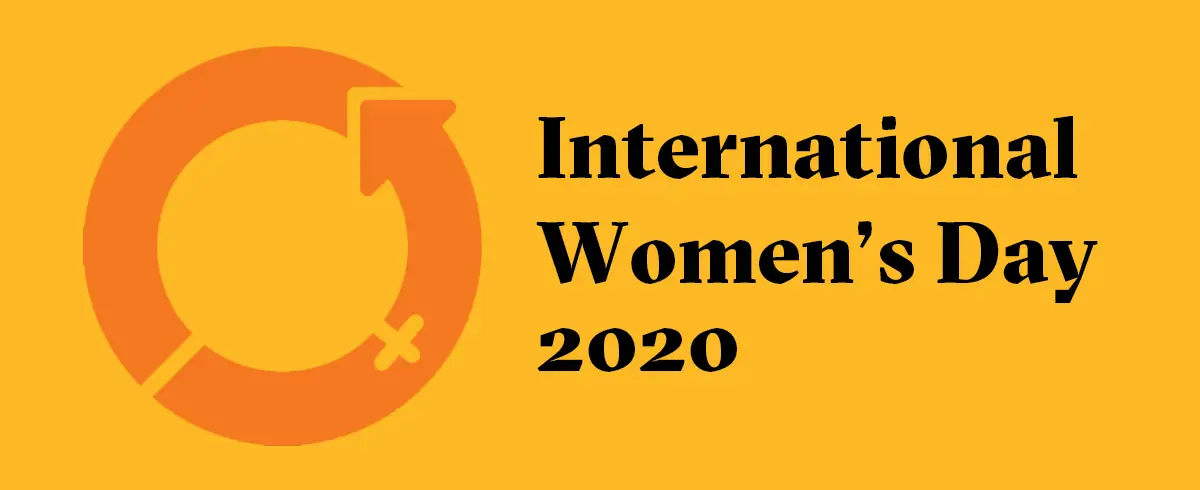International Women’s Day 2020. A day dedicated to the celebration of the achievements of women across the globe. A day that puts the issue of gender equality at the forefront. With the current news dominated with disease, natural disasters and political upheaval, you can easily become overwhelmed by the world’s current events. And gender equality is not a subject easily digested. Nor is it an issue that has a simple, easy solution. But for one day a year, the issue of gender inequality and how it is being tackled in different countries, cultures, and sectors becomes the main talking point.
We cannot underestimate the issues in front of us. To give you one example; gender inequality within the workplace. Globally, only 55% of adult women are in the labour market, versus 78% of men. In addition to this, 50% of the income gaps are still to be bridged. If we wanted to break this down further, only 36% of senior private sector’s managers and public sector’s officials are women
[i].
The chosen theme of this year’ campaign therefore seems like a perfect fit; ‘an equal world is an enabled world’. Gender imbalance and discrimination is not a problem just to bear by women. But a problem solved collectively. Each and every one of us can contribute towards achieving a gender equal world, which not just creates an environment where women can thrive, but one which wealthier and healthier for all.
So how is this year’s theme explored within the context of planning? The RTPI have recently released their study into women in planning
[ii] and to provide you with some headline figures: the current RTPI membership gender split is 39% female, 61% male. When looking at final year student membership, 45% are male, and 55% are female. The figures could therefore provide quite an encouraging outlook. But let us not become complacent. As we all know in planning, a particular picture can be painted when using the figures in the right way.
The research recently published by the RTPI also reports women’s experience with sexist behaviour within the sector and their struggle to get to positions of power. It was concluded that attracting women to the sector does not appear to be the problem (as reflected by the student membership figures) but retaining women through their career progression and any lifestyle changes remains a prevalent issue.
What’s clear in all of this? We need to create an environment across the sector that supports women’s career progression. New opportunities need to be created for women, whether it be the recognition for more flexible working for staff or rather simply ensuring a more balanced male-female representation at events or panels. Essentially, women need to be involved in the conversation. As this year’s campaign theme promotes, gender imbalance is not a problem just to bear by women. Those in positions of power (more often than not this is men), need to ensure that those policies, initiatives and opportunities that have a potential to impact on women’s career progression involve both men and women in the conversation.
Life at Lichfields
Here at Lichfields, we have progressed from the initial initiative of ‘Evolution’ to one focused on ‘Lifestyle Management’, encompassing issues such as gender inequality, but also issues such a mental health and well-being. The idea behind both these schemes is the sense of shared responsibility, the recognition that an employee’s relationship with the workplace changes over time and therefore their needs also evolve and change. For example, Lichfields offer flexible working to staff; in the structure of hours worked, cross-office working and the ability to work from home.
As a planner in the Manchester office, it is encouraging to work within a team predominately of women in varying roles. Of note is Caroline Musker, who joined Lichfields as a graduate and has recently been
promoted to Senior Director. We are also joining to celebrate the achievements of Tabitha Knowles, who has been nominated as a
Women of Influence of 2020 within The Planner in recognition for her expertise in aviation planning.
We are celebrating International Women’s Day across our offices this year. In our Manchester office, we look forward to hosting a walking tour celebrating the historic women of Manchester. A great opportunity to embrace the values of International Women’s Day as a company.
The Future
There is always room for improvement when tackling issues such a gender equality. I hope that over my career progression I see more women not just in positions of power, but importantly that women in varying roles are involved in the conversation as to finding meaningful steps forward.
[i] World Economic Forum[ii] Women and Planning: An analysis of gender related barriers to professional advancement



